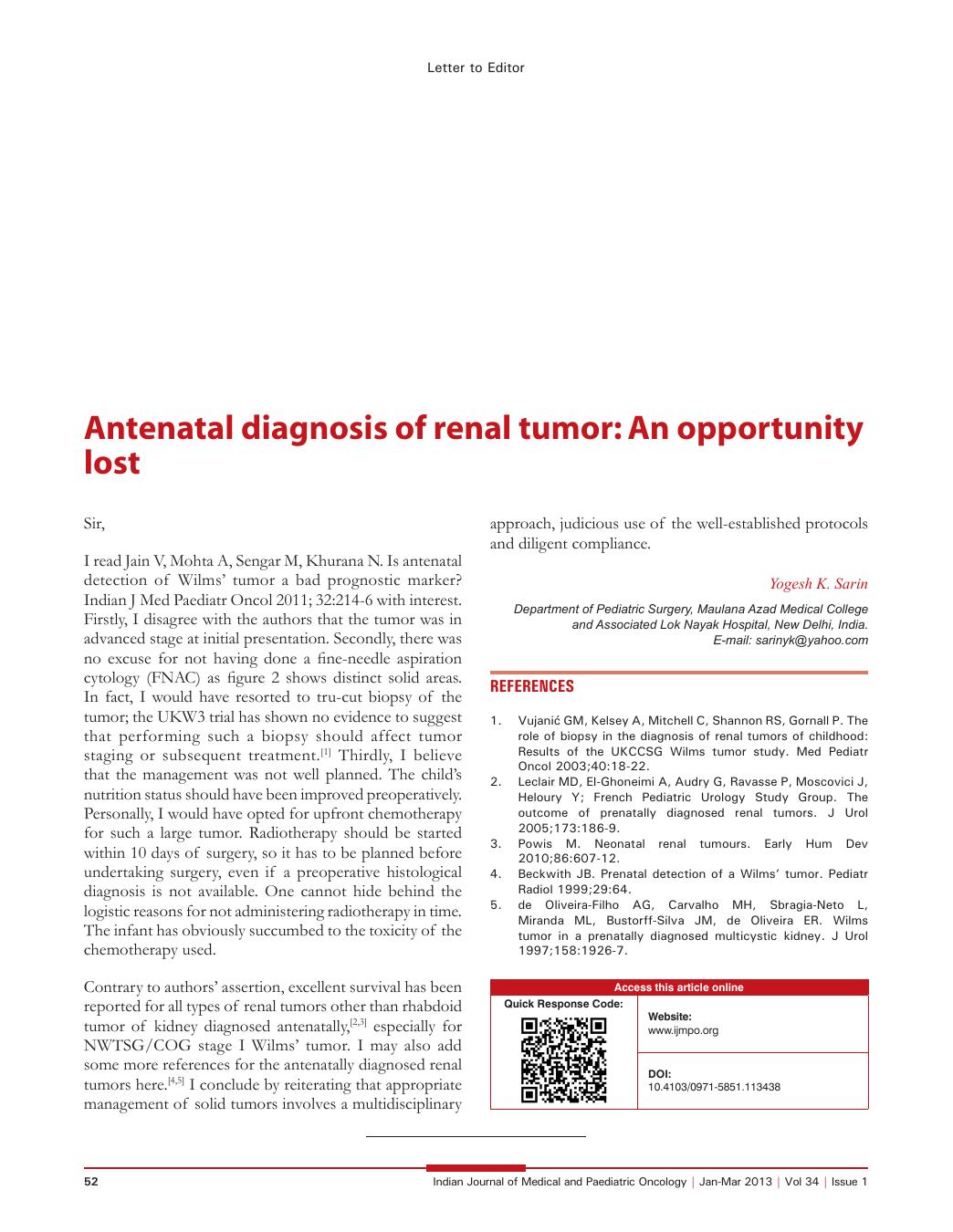Antenatal diagnosis of renal tumor: An opportunity lost
CC BY-NC-ND 4.0 · Indian J Med Paediatr Oncol 2013; 34(01): 52
DOI: DOI: 10.4103/0971-5851.113438

Publication History
Article published online:
20 July 2021
© 2013. Indian Society of Medical and Paediatric Oncology. This is an open access article published by Thieme under the terms of the Creative Commons Attribution-NonDerivative-NonCommercial-License, permitting copying and reproduction so long as the original work is given appropriate credit. Contents may not be used for commercial purposes, or adapted, remixed, transformed or built upon. (https://creativecommons.org/licenses/by-nc-nd/4.0/.)
Thieme Medical and Scientific Publishers Pvt. Ltd.
A-12, 2nd Floor, Sector 2, Noida-201301 UP, India
Sir,
I read Jain V, Mohta A, Sengar M, Khurana N. Is antenatal detection of Wilms’ tumor a bad prognostic marker? Indian J Med Paediatr Oncol 2011; 32:214-6 with interest. Firstly, I disagree with the authors that the tumor was in advanced stage at initial presentation. Secondly, there was no excuse for not having done a fine-needle aspiration cytology (FNAC) as figure 2 shows distinct solid areas. In fact, I would have resorted to tru-cut biopsy of the tumor; the UKW3 trial has shown no evidence to suggest that performing such a biopsy should affect tumor staging or subsequent treatment.[1] Thirdly, I believe that the management was not well planned. The child's nutrition status should have been improved preoperatively. Personally, I would have opted for upfront chemotherapy for such a large tumor. Radiotherapy should be started within 10 days of surgery, so it has to be planned before undertaking surgery, even if a preoperative histological diagnosis is not available. One cannot hide behind the logistic reasons for not administering radiotherapy in time. The infant has obviously succumbed to the toxicity of the chemotherapy used.
Contrary to authors’ assertion, excellent survival has been reported for all types of renal tumors other than rhabdoid tumor of kidney diagnosed antenatally,[2,3] especially for NWTSG/COG stage I Wilms’ tumor. I may also add some more references for the antenatally diagnosed renal tumors here.[4,5] I conclude by reiterating that appropriate management of solid tumors involves a multidisciplinary approach, judicious use of the well-established protocols and diligent compliance.


 PDF
PDF  Views
Views  Share
Share

